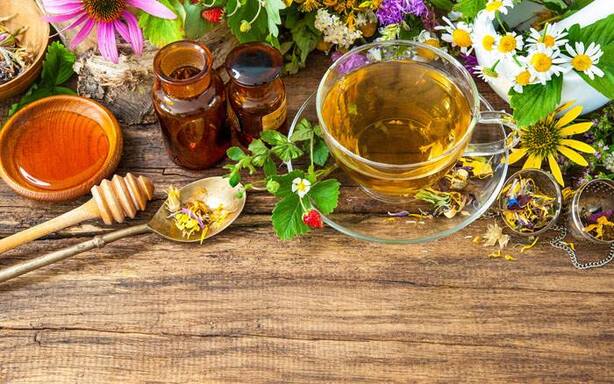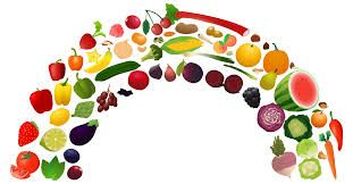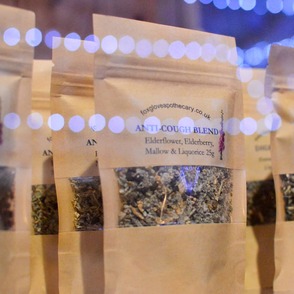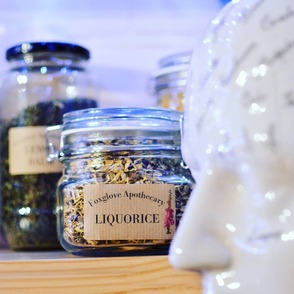|
It's been an unforgettable year so far and here we are in the middle of summer.. I hope you & your loved ones are well! As we begin to return to a more normal world this is a good time to look at how we approach dis-ease and wellness from a refreshed perspective, I firmly believe that we have the ability to manage our health in a more natural and sustainable way, using holistic methods which are mostly easy to do and these practices give us a better physical and emotional connection with our own healthcare. I'm not an epidemiologist and don't know all of the answers from a natural, scientific or spiritual perspective but as a herbalist I repeatedly see how a natural approach to disease prevention, treatment & recovery can make a very significant difference. I wanted to share some principles of practice that I apply in clinic and give an overview of things you can do at home. I've gone into detail about herbal medicine and it's application because many people who have some confusion about herbal medicine, often people think Herbalists are Homeopaths, but this is a different discipline altogether and many people don't realise herbal medicine it's the oldest and most natural form of medicine available and still used extensively today across every continent. I've concentrated on tips relevant to Coronavirus protection but these can also be applied for protection against the range of illness's that commonly circulate throughout the year. Importantly, we should remember that we're built to heal from within, if we nourish our physical, mental and energetic bodies, most of us have the ability to maintain good health. The layers of our immune system and our ability to adapt are integral to how we stay healthy & we can easily enhance these processes with diet and plant medicines. We have an abundance of plants readily available to give us medicine, food & oxygen and though they don't always completely prevent or cure an illness, when used correctly, they assist our physiology to work to a fuller potential and do this without causing own side effects. Even the smallest good habits you introduce make a difference and they don't need to be complicated, most of these recommendations just require a little bit of organisation and maybe adding a few things to your stock or medicine cupboard.
Microbiome health - can affect our overall health, some of the negative influencer's on our microbiome include sugar, sweeteners, yeast, antibiotics, stress and lack of exercise. The good guys include pre & probiotics, fresh fruit & vegetables, allium foods such as garlic & onions, fermented food and drinks and herbal bitters.
Supplements - The question of supplements for me, concerns diet, environment and body function. If your diet's lacking something specific or there are issues such as digestive disorders which may impair absorption of vitamins and minerals then supplements might be appropriate. Age is another consideration, as we get older we absorb and assimilate nutrients less optimally and a lack of sunlight in winter months may leave us low on Vitamin D.
Respiratory health - our defense against many pathogens begins in the upper respiratory system so keeping the tissues of our nasal passages, mouth and throat healthy can directly enable these parts of our barrier defenses to prevent microbes from penetrating the body. Salt or herbal gargles, nasal flushing, throat sprays, good oral hygiene and promoting tissue health from within can be beneficial.
Exercise & fresh air - to be healthy we need to keep moving. Exercise is good for keeping your lungs and heart, as well as your body in shape. All aerobic exercises from walking to cycling or running get oxygen & toxins moving quickly while practices like yoga or pilates work intensely on core strength and are combined with breathing and focus, which is good for you mental health.
The beauty of our herbal allies is that they can be easily used to help prevent infections or as direct treatment during illness. All plants have a range of active constituents, most have more than one specific use and when used in their whole state the plant's chemical profile gives a balanced effect on our bodies so we experience less unwanted additional actions which we refer to as side effects. Plants work with the body to moderate health and maintain optimum function, they're often so effective but gentle it's hard to distinguish why we simply feel more normal, this is truly harmonious healing! Herbs can be immune stimulating or modulating, anti-inflammatory, anti-viral, anti-oxidant, diaphoretic, adaptogenic, detoxifying, anti-congestive and much more. This means we can apply herbs for specific purposes as well as for general health and in doing so we're using the best of both a holistic approach and a targeted purpose. An example is Elderflower & Elderberry which are anti-inflammatory and immune mediating, they're also diaphoretic, which means they enhance sweating but keeps it at a controlled and sustainable rate. This helps to ensure a fever is more healing than harming and at the same time Elder helps the immune system to function better. Top 10 herbs for immune defense1. Echinacea - is an immune modulator, it actually help's to regulate the body's innate immune responses creating faster responses where are needed and slowing overactive responses which may be detrimental. It has particular influence over certain cells of the immune system and is anti-viral, anti-inflammatory and topically healing. Traditionally used for respiratory infections and is safe to take for prolonged periods. 2. Elderberry - good antiviral properties and has been shown to improve immune system activity. It stimulates certain immune cells which combined with an anti-inflammatory action, improves the defenses of our innate immunity. Elderberry extracts are traditionally used for colds and flu and have an anti-inflammatory, antioxidant & diaphoretic action. 3. Astragalus - is an adaptogenic herb (helps the body overcome & adapt during stress), it's used especially for respiratory infections and can increase respiratory function with asthma. Immune enhancing, immune modulating, anti-viral, anti-oxidant. It has a positive effect on the heart, endothelial function and the liver. In Chinese medicine it's called Huang Qi & is used in menopausal preparations and as a blood tonic. 4. Andrographis - a bitter tonic which stimulates and modulates the immune system, an effective anti-viral which also protects the liver and is hypoglycaemic. Adrographis is used for respiratory infections and the bitter element helps strengthen a weak digestive system. 5. Liquorice - has a wide ranging profile and is truly multi-purpose herb! It's soothing both internally and externally and is used extensively in mixtures for respiratory infections, especially conditions that produce mucus. Shown to have anti-viral, anti-inflammatory and anti-allergenic actions, another immune modulator, liver herb and supports the adrenal function. It has a mild hypertensive effect so large amounts should not be used in high doses for prolonged periods by people with high blood pressure. 6. African Geranium - the root can help decrease excess mucus in the lungs and it's valuable for acute respiratory and sinus infections as it actually helps the body expel excess mucus. Has immune cell enhancing properties is anti-viral. 7. Ginger - has been shown to have immune & antiviral activity, ginger heat is useful for increasing body temperature and the anti-platelet and anti-inflammatory actions can help keep blood vessels healthy. Ginger aids digestive function and is good for nausea, rheumatic conditions and migraine. 8. Marigold - is a great external remedy which promotes skin healing and often used internally for gastric disorders. In addition it has a mild oestrogenic effect making it very useful for gynaecological conditions. It's anti-inflammatory, antiseptic and is a mild immune stimulant. 9. Eucalyptus - often forgotten about as a herb, eucalyptus has an affinity for the lungs and upper respiratory system. Its good for all respiratory complaints including infection, asthma, catarrh & bronchitis and is anti-tussive which helps stop a cough. Its anti-microbial, anti-inflammatory and anti-spasmodic. Do not use for young children, in pregnancy and for very frail people. 10. Turmeric - this plant has wide ranging benefits and has become known a bit as a wonder herb in recent years, with good reason. Turmeric is excellent for pain and inflammation, for both chronic and acute conditions and regular use can give outstanding relief. It has a powerful anti-oxidant activity and influences cell life cycles in a positive way to be helpful in cancer prevention. Also being an immune modulator, anti-microbial, cardio & liver protector and digestive herb, turmeric is useful to include either via the diet or supplement.
Tinctures are stronger liquid extracts of individual herbs and herbalists normally make a combination of several tinctures when making an individual prescription or remedy. Because tinctures are much stronger than teas they're taken in much smaller amounts, usually between 1-5ml at regular intervals (5ml = one teaspoon). Tinctures are fairly safe to take but as with anything you're ingesting, you should know what you're taking, make sure you're taking the correct dose and if you have pre-existing medical conditions, are on medication or are not sure of dosage then seek advice from a professional.
The level of support needed when it comes to taking herbs will be individual, it's a matter of choice as to whether you take a remedy every day for immune modulation and virus protection or if you take a remedy when you begin to feel ill, show symptoms or have had exposure to a pathogen. The sooner herbal treatment begins after exposure to a pathogen has occurred the better, from this point of view I encourage having these herbs at hand for when you need them. For herbal medicine to be effective it's best to take herbal teas, decoctions, tinctures or capsules for several days (to weeks or even months for chronic medical conditions) as you will need more than one dose for it to be efficient. Natural remedies work in a gentle and accumulative way, to put into context, immune stimulation or modulation would not occur from a single dose or a sub therapeutic dose (not enough) just the same a single antiviral or antibiotic tablet would not work. If you buy herbal remedies from a herbalist apothecary or a health shop you'll be given guidance on the best dose. Just be aware that over the counter remedies available from chemists, supermarkets & online often prescribe very small drop doses for safety reasons, sometimes these doses are sub therapeutic and not properly effective. If you buy an over the counter remedy you should do a bit of research or check with someone who knows to make sure you're taking the right dose. Herbal Medicine books are useful and as your local herbalist I'm always happy to give guidance if you're unsure. Growing and foraging your own is a lovely thing to do and really connects you with your food and medicine and you can store your bounty by drying or even making your own tinctures, oils, oxymels and vinegars. Looking at natural options and holistic health has never been more important. As we emerge from global lock down we'll be much better off if we harmonise more with nature and use a lighter touch toward our health and our environment, with mindful thinking we can all learn to take better care of ourselves using less toxic and more sustainable self practices. To share these ideas and knowledge with each other sits with the true nature of herbalism and brings us back to more natural and grounded thinking. Take care, be well and remember to practice Ahimsa - respect for yourself, others and the beautiful planet we share!
5 Comments
Shriya
26/9/2023 19:06:44
There is a book which tells about such amazing natural remedies for day to day health problems <a href="https://wsl.365dailyhealth.com/encyclopedia1#aff=Siiiya" target="_blank">click here</a> it’s really informative.
Reply
Archit Mehta
1/10/2023 18:22:49
Your blog post provided valuable insights and was easy to comprehend. I appreciate the effort you put into gathering the information. <a href="https://515695v4oqiv8qdrcujm-y6ze8.hop.clickbank.net" target="_blank">click here</a> to explore more. Thanks for sharing!
Reply
Archit Mehta
4/10/2023 18:58:43
Your explanations are clear and concise, making it easy to understand. To learn more, <a href="https://4965f566uq6u8rbfzmrgrvws1a.hop.clickbank.net" target="_blank">click here</a>.
Reply
Archit Mehta
12/10/2023 08:58:21
I found your blog post to be well-structured and easy to understand. The information you shared was insightful, and I appreciate the additional resources you provided. To gain further knowledge, <a href="https://723d81vxipdt0vag06k8u0clcj.hop.clickbank.net" target="_blank">click here</a>.
Reply
Leave a Reply. |
AuthorI want to share what I know about natural medicine with you. I also love stories and articles about food and nature so in this blog I will be looking at all these subjects and how they come together in our daily lives. Archives
November 2020
Categories |




 RSS Feed
RSS Feed